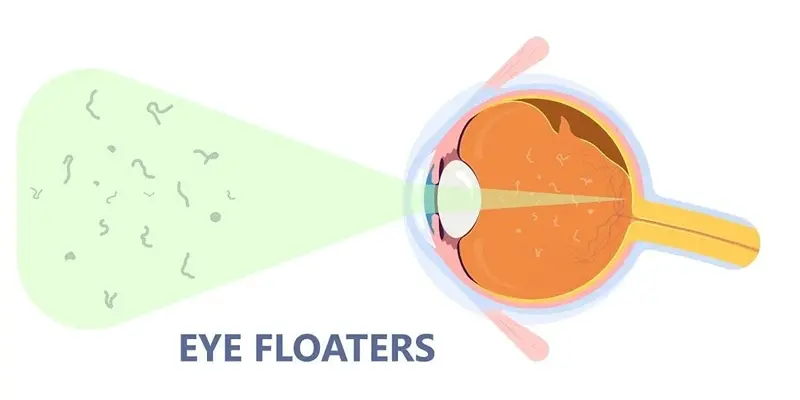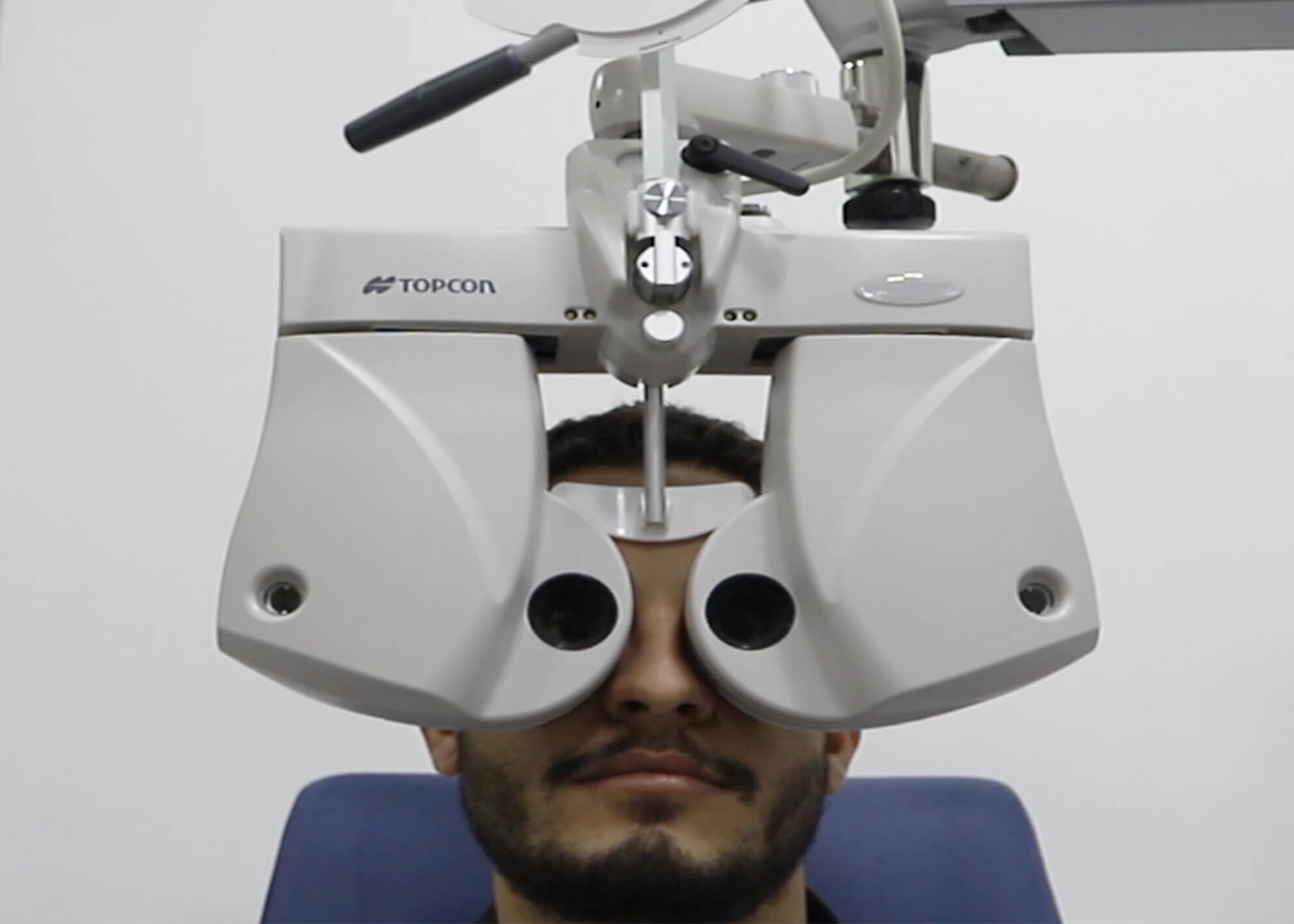Eye Floaters at Eye Clinic DRHC Dubai
Eye floaters are tiny specks or threads that drift across your field of vision. They are particularly noticeable when looking at a bright background, such as a clear sky or a white wall. While usually harmless, eye floaters can be distracting and may sometimes indicate an underlying eye condition. At DRHC Dubai, we offer comprehensive care to diagnose and treat eye floaters, ensuring your visual health and comfort.
What Are Eye Floaters?
Eye floaters are small, shadowy shapes that appear in your vision. They are caused by tiny clumps of gel or cells inside the vitreous, the clear gel-like substance that fills the inside of your eye. As you age, the vitreous can become more liquid and shrink, causing these clumps to form. When light passes through your eye, these clumps cast shadows on your retina, creating the appearance of floaters.
Floaters can take on various shapes, such as:
- Spots or Dots: Small, dark spots that move as your eyes move.
- Thread-Like Strands: Wispy or stringy lines that seem to drift across your vision.
- Cobwebs: A mesh-like pattern that can appear more prominent in certain lighting conditions.
- Rings or Circles: Round or oval shapes that are more visible when you try to focus on them.
Causes of Eye Floaters
Most eye floaters are a result of natural changes in the eye as we age, but they can also be caused by other factors, including:
- Aging Process
- Posterior Vitreous Detachment (PVD): As you age, the vitreous gel may shrink and pull away from the retina, causing floaters to appear.
- Degeneration of the Vitreous: Over time, the vitreous can lose its shape and consistency, leading to the formation of floaters.
- Eye Conditions
- Retinal Tears or Detachments: A tear in the retina can cause vitreous gel to seep through, leading to the sudden appearance of floaters. This is a serious condition that requires immediate medical attention.
- Uveitis: Inflammation of the uvea, the middle layer of the eye, can cause floaters due to the accumulation of inflammatory cells in the vitreous.
- Hemorrhage in the Eye: Bleeding into the vitreous from a damaged blood vessel can create floaters.
- Injury or Trauma
- Eye injuries or trauma can lead to the development of floaters by causing damage to the vitreous or retina.
- Diabetic Retinopathy
- Diabetes can cause damage to the blood vessels in the retina, leading to the formation of floaters.
- Eye Surgeries
- Certain eye surgeries, such as cataract surgery, may result in the formation of floaters as a side effect.
Diagnosis of Eye Floaters
At DRHC Dubai, we provide a thorough evaluation to determine the cause of your eye floaters and to rule out any serious underlying conditions. The diagnostic process includes:
- Comprehensive Eye Exam: A full assessment of your vision and eye health to detect any abnormalities.
- Dilated Eye Exam: Dilating the pupils to get a detailed view of the retina and vitreous, allowing our ophthalmologists to identify any retinal tears, detachments, or other issues.
- Ocular Ultrasound: If necessary, an ultrasound may be performed to examine the vitreous and retina more closely, especially if a retinal tear or detachment is suspected.
Treatment Options for Eye Floaters
In most cases, eye floaters do not require treatment and may fade over time. However, if floaters are significantly affecting your vision or are a sign of a more serious condition, treatment may be necessary. At DRHC Dubai, we offer several treatment options:
- Observation
- Monitoring: For most patients, floaters are a benign condition that can be managed with regular monitoring. If the floaters are not associated with any serious underlying condition, no treatment may be needed.
- Lifestyle Adjustment: Learning to ignore floaters or adjusting your environment (such as using softer lighting) can help reduce the impact on your vision.
- Laser Treatment (Laser Vitreolysis)
- In cases where floaters are particularly bothersome, laser vitreolysis can be used to break up the floaters, making them less noticeable. This non-invasive procedure uses a laser to target and vaporize the floaters in the vitreous.
- Vitrectomy
- Surgical Removal: In more severe cases, a vitrectomy may be performed. This surgical procedure involves removing the vitreous gel along with the floaters and replacing it with a clear solution. Vitrectomy is typically reserved for cases where floaters severely impact vision and other treatments have not been effective.
- Treatment of underlying Condition
- Retinal Tears or Detachment: If a retinal tear or detachment is detected, immediate surgical intervention is required to repair the retina and prevent further vision loss.
- Managing Inflammation: For conditions like uveitis, anti-inflammatory medications may be prescribed to reduce inflammation and minimize floaters.
Why Choose DRHC Dubai?
At DRHC Dubai, we are committed to providing top-quality eye care with a focus on patient comfort and satisfaction. Our experienced ophthalmologists use state-of-the-art technology to accurately diagnose and treat eye floaters, ensuring the best possible outcomes. Whether your floaters are a minor nuisance or a sign of a more serious condition, we are here to provide expert care and guidance.
.png?width=281&height=59&name=bookanappointment%20(1).png)
At Dr. Rami Hamed Center, our Ophthalmology department is dedicated to safeguarding your vision health through expert eye care Professionals. Renowned as one of the best eye care clinics in Dubai our Ophthalmology Specialists provide services for Cataract and retina treatment with Laser and Refractive surgeries.




.png?width=281&height=59&name=bookanappointment%20(1).png)






